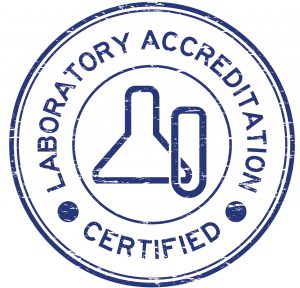
In simple terms, being CLIA certified and CAP accredited ensures your test results are meeting and exceeding industry standards for clinical laboratory testing.
The Clinical Laboratory Improvement Amendments of 1988 (CLIA) are federal regulations for United States based clinical laboratories to provide industry standards for testing of human samples for diagnostic purposes. These amendments were added to the laboratory requirements outlined in the Code of Federal Regulations, 42 CFR 493. Three federal agencies are responsible for ensuring compliance of laboratories to CLIA: the Food and Drug Administration (FDA), Center for Medicaid Services (CMS), and the Center for Disease Control (CDC). Having a CLIA certificate demonstrates that OralDNA® Labs meets the federal regulations for clinical diagnostic testing, ensuring quality and safety in the laboratory and laboratory results.
Further, a laboratory can pursue a higher level of quality by becoming accredited by a recognized accreditation agency. The College of American Pathologists (CAP) is such an agency. The CAP releases its own requirements building upon CLIA ’88 regulations. Compliance is assessed by a peer group site inspection every two years. Meeting these criteria ensures that industry specific standards for laboratory operation are upheld in the lab. These requirements can also point out areas for improvement in order to reach the highest level of quality. Being able to show our clients that OralDNA® Labs has maintained CAP accreditation for years, only attests to our commitment to laboratory quality.
If you have any questions, please contact us by phone 855.ORALDNA (672.5362) or email support@oraldna.com.
For more information on how to become an OralDNA Provider – scan HERE: 
- What does it mean when the report says “QNS”? - September 14, 2018
- Definition: CLIA certified? CAP accredited? What does this mean? - March 9, 2018
